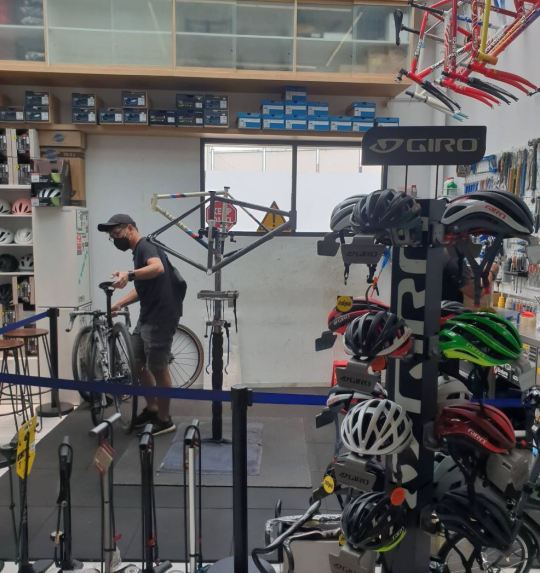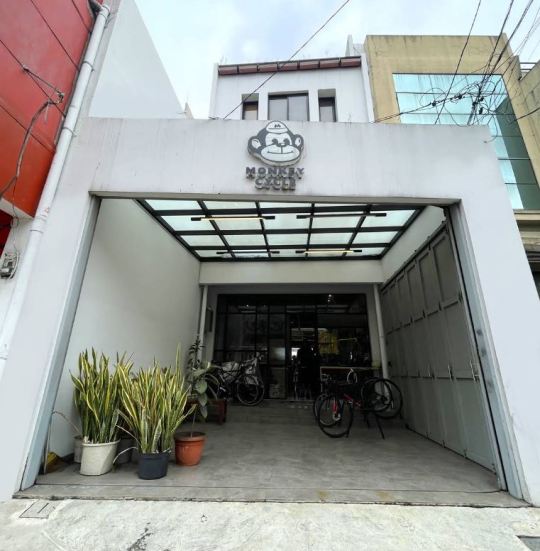#MonkeyCycleShop
Explore tagged Tumblr posts
Text
How the Israel-Iran Conflict Impacts the Global Bicycle Industry

Geopolitical tensions have always had ripple effects on international trade. One such emerging concern is the escalating conflict between Israel and Iran, which—beyond its regional impact—is starting to affect various global industries, including the bicycle market.
Although bicycles are not directly linked to oil, arms, or strategic commodities, the broader disruptions caused by war in the Middle East can have indirect but significant effects on supply chains, logistics, and consumer behavior.
🚢 1. Disrupted Shipping Routes
With tensions in the Middle East, especially around the Strait of Hormuz, shipping routes are at risk. This waterway is crucial for global oil and cargo trade. Delays, detours, or military blockades could affect freight costs and schedules for products, including bicycles and cycling gear manufactured in or shipped via Asia.
Result:
Increased shipping costs
Delayed deliveries
Less predictability in international bike orders
🛠️ 2. Rising Material Costs
Many bicycle components are made using aluminum, steel, and carbon fiber—materials whose prices are sensitive to fuel costs and political risk. If crude oil prices spike due to war, transportation and manufacturing costs also rise.
This could lead to:
Increased retail prices for bicycles
Slower production due to tighter margins
Disruption in mid-range bike availability
💸 3. Shift in Consumer Behavior
During uncertain times, especially with inflation or war-related anxiety, people tend to delay non-essential purchases. For many, buying a new bicycle may be postponed—especially high-end models.
However, there's a flip side: In some regions, people shift to bikes for economic mobility when fuel becomes expensive or public transportation is limited. This can create localized demand surges, particularly for:
Electric bikes (e-bikes)
Urban commuting bicycles
Secondhand bike markets
🇮🇩 4. How Southeast Asian Sellers Like MonkeyCycleShop Are Responding
Retailers from outside the immediate conflict zone—like MonkeyCycleShop in Indonesia—are leveraging their geographic and economic positioning to offer stability to global buyers.
MonkeyCycleShop:
Offers globally shipped bicycles at stable prices
Sources from local and regional suppliers with less Middle East exposure
Supports resellers and individual buyers facing supply gaps in the US, UK, or EU
For example, while European retailers may struggle with import delays or currency fluctuations, MonkeyCycleShop can maintain:
Competitive pricing
Flexible shipping via alternate Asia-based freight routes
Responsive support for custom orders
👉 Learn more: www.monkeycycleshop.com
🔍 5. What to Expect Going Forward
The bicycle industry, like many others, is interconnected with global economic and political shifts. A regional war—even without directly targeting the industry—can ripple out through oil markets, freight routes, and consumer confidence.
Retailers and distributors will need to:
Diversify supply chains
Watch fuel and shipping prices closely
Prepare for both demand drops and surges based on region
Consumers, on the other hand, may want to buy earlier rather than later, before prices rise or inventory shrinks.
🎯 Conclusion
While the Israel-Iran conflict may seem far removed from cycling, its economic impact travels globally. From shipping disruptions to material cost increases, the effects are real. Southeast Asian companies like MonkeyCycleShop offer an alternative for both everyday riders and global resellers looking for reliability amid the uncertainty.



#bike#bike shop#cycling#electric bikes#sports#bicycle industry#geopolitics#Israel#Iran#global trade#bike prices#MonkeyCycleShop#e-bike#supply chain
0 notes
Text


2 notes
·
View notes
Text
#bike#bike shop#cycling#electric bikes#sports#Bicycle#BikeShop#BikeLife#Cycling#Cyclist#BikeForSale#BikeLovers#BikeGear#RideYourBike#BikePassion#CycleLife#MountainBike#RoadBike#FoldingBike#UrbanCycling#BikeCommunity#BikeAddict
1 note
·
View note